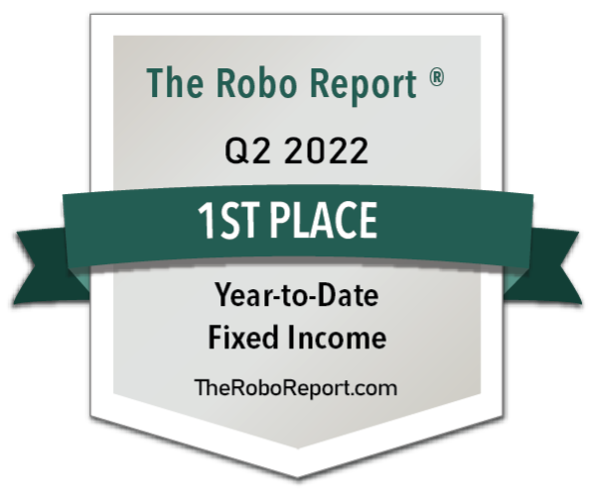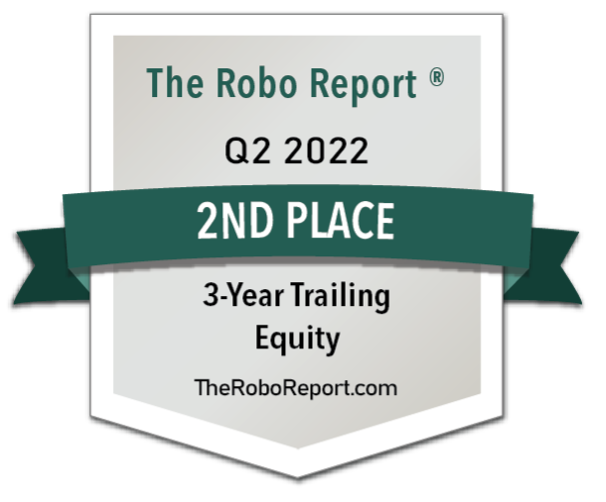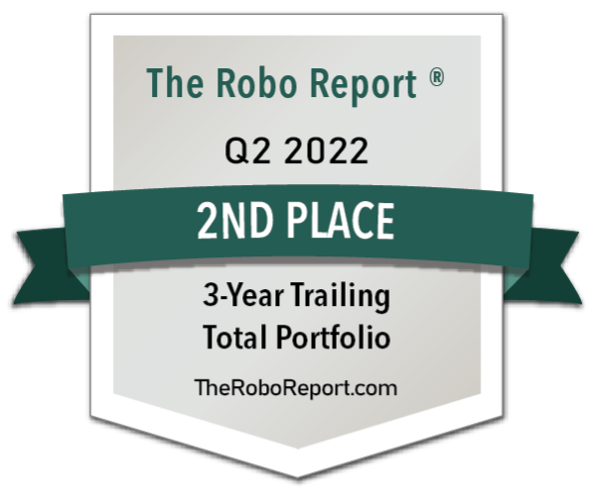Is the Economy Actually Contracting or Not?
September 26th, 2022 | Posted in InvestingIs the U.S. Economy Actually Shrinking?
Official statistics from the Bureau of Economic Analysis show the US economy contracted by -1.6% in the first quarter and then again by -0.9% in Q2.1 Technically speaking, two consecutive quarters of negative GDP growth meets the technical definition of an economic recession, but whether or not the U.S. was contracting is a different story. A key measure of economic output suggests the recession was avoided, at least for now.2
To understand how the economy could have been plateauing or even expanding slightly, it is important to note that there are two ways to measure economic output: gross domestic product (GDP) and gross domestic income. When all transactions in the economy are taken into account, there are essentially two sides to the ledger to consider. On one side are all of the individuals and businesses spending money to purchase goods and services. All of this spending is captured in the GDP figure.
On the other end of those transactions, however, there are businesses and other individuals earning income and delivering the goods and services. This is known as Gross Domestic Income, or GDI. The data gathered in GDI is made up of corporate earnings, wages, self-employment income, interest, and rent.
Are Robo Advisors the Next Generation For Investment Management?
Robo advisors have made a splash by helping to streamline the investing process and possibly saving investors money. But can they replace the active management and personal attention of a traditional wealth manager? Our free Revolutionize Your Retirement guide takes a look at these important issues and more, providing our insights that may be able to help you make better investing choices. You’ll get our thoughts on:
- The Impact of Fees on Investments
- Technological Advantages including Rebalancing and Tax Loss Harvesting
- Combining Robo Technology with Active Management
Download your copy of Revolutionize Your Retirement.3
In most quarters and years, GDI and GDP readings track fairly closely to one another, with slight but not necessarily exaggerated discrepancies in every print. In 2022, however, the discrepancy has been notably wide – in the first half of the year, GDP was said to have contracted at a -1.1% annual rate, while GDI showed an increase of 1.6% year-over-year. Higher wages and a boost in self-employment income and rents likely drove the growth.
A common practice in the macro-analytical world is to average the GDP and GDI readings to provide a better idea of how the economy may be faring. By that measure, the first half of 2022 saw a very modest expansion of 0.2%, which suggests a recession did not take place after all. And since a recession is defined as a broad and sustained contraction in overall activity, we are of the mindset that GDI painted a clearer picture of the economy over the last six months than GDP, especially when considering how tight the labor market remains.
The second quarter saw robust job growth, rising wages, and consumer spending that held up remarkably well despite inflationary headwinds. In Q1, we believe there were some features of the GDP calculation that masked underlying activity. Specifically, there were three main detractors of the GDP headline figure:
- Trade Deficit – imports are subtracted from GDP figures while exports are added. Imports often make their way into other parts of GDP, most notably in consumer spending, which is the reason they detract from GDP. But investors should not get too fixated on trade deficits as a measure of an economy’s overall health. What matters more is total trade, which gives a better indication if more goods and dollars are trading hands overall.To that point, total trade was up solidly in Q1. The imports of goods soared 11.5% to $294.6 billion, while the exports of goods also rose 7.2% to $169.3 billion. The fact that imports rose at a much faster clip than exports is a negative for GDP calculations but does not necessarily signal trouble in the economy. In fact, trade has subtracted from U.S. GDP growth for the last six quarters, which has been a strong period overall for growth.
- Slow Inventory Investment – one of the main drivers of Q4 2021’s robust 6.9% GDP figure was inventory investment by businesses. Many companies – fearing additional supply chain snags in the new year and anticipating higher demand – stocked up on products. The inventory buildup in Q4 was enough to add over 5% to headline growth, a pretty massive contribution. It makes some sense, then, that in Q1 2022 companies would not need to keep up that same pace of inventory investment, which ultimately meant that inventory investment subtracted -0.84% from GDP. That’s an over 6% difference from one quarter to the next, which was not very typical.
- Falling U.S. Government Spending – finally, government spending fell in Q1 and Q2 as the stimulus measures tied to the pandemic have largely run their course. Government spending fell at a -2.7% annualized pace, which in Q1 2022 meant subtracting 0.48% from the headline GDP figure. This part of the GDP equation did not come as a surprise to anyone watching closely – the fading effect of pandemic stimulus spending is widely known.
This is not to say that the US will avoid recession altogether – some leading indicators like the Conference Board LEI and the 10-year / 3-month US Treasury bond yield curve are getting close to outright flashing recession. With the Federal Reserve committed fully to tightening financial conditions, it seems very possible that a recession could be in store in the second half of 2022 or early next year. Market volatility today may be pricing-in this possibility.
Bottom Line for Investors
Whether or not the US economy entered a recession in the first half of 2022 is a declaration ultimately made by the National Bureau of Economic Research (NBER). In deciding whether to characterize the economic slowdown as a recession, they consider a wide range of factors beyond GDP, like productivity, gains or losses in the jobs market, and wages. They also consider GDI, which paints a different picture of the US economy than the one we’re seeing today.
Innovative technology is changing the investment landscape quickly, including making investing for retirement potentially less complicated and more effective. Zacks Advantage is at the forefront of these developments with innovative investment solutions—including retirement investment solutions—using new financial technologies. We now offer an actively managed robo advisor that:
- Invests exclusively with ETFs
- Uses technology to recommend the appropriate mix of equities and bond ETFs to help achieve your investing goal and specific risk tolerance.
- Lowers fees and expenses
Our free Revolutionize Your Retirement guide4 provides investing insight that can help you determine whether technology-enhanced investing is right for you.



© 2022 Zacks Advantage | Privacy Policy | Unsubscribe
1 BEA, U.S. Economy at a Glance. 2022.
2 Wall Street Journal. August 29, 2022.
3 Zacks Investment Management may amend or rescind the Revolutionize Your Retirement guide offer for any reason and at Zacks Investment Management’s discretion.
4 Zacks Investment Management may amend or rescind the Revolutionize Your Retirement guide offer for any reason and at Zacks Investment Management’s discretion.
DISCLOSURE
Past performance is no guarantee of future results. Inherent in any investment is the potential for loss.
Zacks Advantage is a service offered by Zacks Investment Management, a wholly-owned subsidiary of Zacks Investment Research.
Zacks Investment Management, Inc. is a wholly-owned subsidiary of Zacks Investment Research. Zacks Investment Management is an independent Registered Investment Advisory firm and acts as an investment manager for individuals and institutions. Zacks Investment Research is a provider of earnings data and other financial data to institutions and to individuals.
This material is being provided for informational purposes only and nothing herein constitutes investment, legal, accounting or tax advice, or a recommendation to buy, sell or hold a security. Do not act or rely upon the information and advice given in this publication without seeking the services of competent and professional legal, tax, or accounting counsel. Publication and distribution of this article is not intended to create, and the information contained herein does not constitute, an attorney-client relationship. No recommendation or advice is being given as to whether any investment or strategy is suitable for a particular investor. It should not be assumed that any investments in securities, companies, sectors or markets identified and described were or will be profitable. All information is current as of the date of herein and is subject to change without notice. Any views or opinions expressed may not reflect those of the firm as a whole.
Any projections, targets, or estimates in this report are forward looking statements and are based on the firm’s research, analysis, and assumptions. Due to rapidly changing market conditions and the complexity of investment decisions, supplemental information and other sources may be required to make informed investment decisions based on your individual investment objectives and suitability specifications. All expressions of opinions are subject to change without notice. Clients should seek financial advice regarding the appropriateness of investing in any security or investment strategy discussed in this presentation.
Certain economic and market information contained herein has been obtained from published sources prepared by other parties. Zacks Investment Management does not assume any responsibility for the accuracy or completeness of such information. Further, no third party has assumed responsibility for independently verifying the information contained herein and accordingly no such persons make any representations with respect to the accuracy, completeness or reasonableness of the information provided herein. Unless otherwise indicated, market analysis and conclusions are based upon opinions or assumptions that Zacks Investment Management considers to be reasonable. Any investment inherently involves a high degree of risk, beyond any specific risks discussed herein.
The S&P 500 Index is a well-known, unmanaged index of the prices of 500 large-company common stocks, mainly blue-chip stocks, selected by Standard & Poor’s. The S&P 500 Index assumes reinvestment of dividends but does not reflect advisory fees. The volatility of the benchmark may be materially different from the individual performance obtained by a specific investor. An investor cannot invest directly in an index.
Robo investments are subject to some unique risks, including, but not limited to, the fact that investment decisions are made by algorithms based on investors’ answers to questions, there is a lack of human involvement, and there is the possibility that the software may not always perform exactly as intended or disclosed. Such investment programs are only suitable for investors who can bear the risk of a complete loss of their investments.
The S&P GSCI is the first major investable commodity index. It is one of the most widely recognized benchmarks that is broad-based and production weighted to represent the global commodity market beta. The index is designed to be investable by including the most liquid commodity futures, and provides diversification with low correlations to other asset classes. The volatility of the benchmark may be materially different from the individual performance obtained by a specific investor. An investor cannot invest directly in an index.
The NASDAQ-100 Index includes 100 of the largest domestic and international non-financial companies listed on The NASDAQ Stock Market based on market capitalization. The Index reflects companies across major industry groups including computer hardware and software, telecommunications, retail/wholesale trade and biotechnology. Index composition is reviewed on an annual basis in December. An investor cannot invest directly in an index. The volatility of the benchmark may be materially different from the individual performance obtained by a specific investor.
Zacks Investment Management 227 West Monroe St. Chicago, IL 60606
Past performance is no guarantee of future results. Inherent in any investment is the potential for loss
Zacks Advantage is a service offered by Zacks Investment Management, a wholly-owned subsidiary of Zacks Investment Research. Zacks Investment Management is an independent Registered Investment Advisory firm and acts as an investment manager for individuals and institutions. All material in presented on this page is for informational purposes only and no recommendation or advice is being given as to whether any investment or strategy is suitable for a particular investor. Nothing herein constitutes investment, legal, accounting or tax advice. The information contained herein has been obtained from sources believed to be reliable but we do not guarantee accuracy or completeness. Zacks Investment Management, Inc. is not engaged in rendering legal, tax, accounting or other professional services. Publication and distribution of this article is not intended to create, and the information contained herein does not constitute, an attorney- client relationship. Do not act or rely upon the information and advice given in this publication without seeking the services of competent and professional legal, tax, or accounting counsel.

